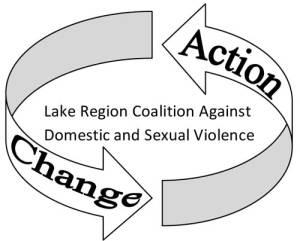Stalking: Know it, so you can stop it
Lake Region Coalition Against Domestic & Sexual Violence
This January, communities around the county will be holding events in order to raise awareness about stalking.
So, what is stalking? While the legal definition is different from state to state, stalking is technically a course of conduct directed at a specific person that would cause a reasonable person to feel fear. In more basic terms, stalking is the un-welcomed pursuit, following or harassment of another person. Stalking is unpredictable, often violent and can escalate over time. Most importantly, stalking is a crime under the laws of all 50 states.
On average, 1.4 million people in the United States are stalked every year. Stalking is not a gender specific crime, although women are three times at greater risk of being stalked than men. Nationwide, it is estimated that 1 in 12 women will be victims of stalking at some point during their lives. At any one time, it is estimated that 200,000 women are being stalked in the United States. Men make up a smaller but equally victimized group. It is estimated that 1 in 45 men will report being stalked at some point during their lifetime. And, while all we ever seem to hear about are the celebrity stalking cases in the media, the vast majority of stalking victims are just ordinary citizens.
There is no one specific profile of a stalker. They come from all walks of life and socioeconomic backgrounds. A stalker can be male or female. A stalker can be someone that the victim knows very well or not at all. However, most victims have dated or been involved with the person who is stalking them. On average, 66% of female victims and 41% of male victims are stalked by a current or former intimate partner. This established relationship creates an increased risk for the victim because the offender is more likely to know the victims’ routines and therefore be more likely to physically approach the victim, to be more insulting or threatening to the victim or use weapons. One thing is clear, a stalker is often motivated by anger, revenge, jealousy or absolute fantasy and they pursue their victims because of rejection, obsession and power/control.
Stalking can take many forms from unwanted phone calls/messages to spreading rumors about the victim, reporting the victim to authorities for crimes that did not occur, and/or coincidentally showing up at the victims’ home/school/place of employment.
Stalking behaviors do not always escalate beyond the point of unwanted contact or information gathering. However, in some cases, behaviors can escalate to include threatening emails/calls, breaking into the victims’ home, destruction of property, assault, rape and sometimes murder.
Technology is also being used by stalkers in ways that the creators never intended. Technology has given stalkers new tools that have made it even easier than ever to track, monitor and harass their victims. More than one in four victims reported to being stalked through the use of some form of technology.
Stalking is unpredictable and dangerous. Because no two stalking cases are alike, it is important to keep in mind that there are no guarantees that what worked for one person will work for another. So, you can take precautions to increase your safety. Trust your instincts; call 9-1-1 if you are in immediate danger; take all threats seriously; do not communicate with the stalker; keep evidence; tell your friends/family/co-workers about the stalking; and change your routine.
If you believe that you or someone you know may be a victim of stalking, help is out there. Family Crisis Services (800-537-6066) has trained advocates available to devise a safety plan, provide information about local laws and weigh options, such as obtaining a protection from abuse order.
If you have any questions about today’s column or for more information about the Lake Region Coalition Against Domestic & Sexual Violence, feel free to contact Stephanie (Sexual Assault Prevention & Response Services) at 743-9777 or Renee (Family Crisis Services) at 647-8501.


